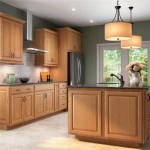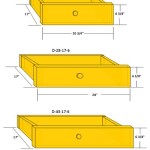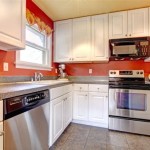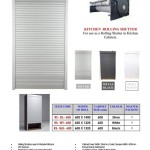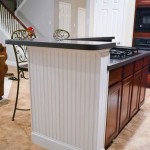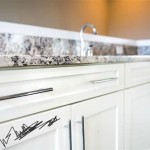Essential Aspects of Basic Kitchen Cabinet Design
Kitchen cabinets are a crucial component of any kitchen, providing both functionality and aesthetic appeal. Designing them requires careful consideration of various factors to ensure an efficient and visually pleasing space.
1. Functionality and Storage
The primary purpose of kitchen cabinets is storage. Determine the amount and type of storage you need based on your cooking habits and the size of your kitchen. Consider different types of cabinets, such as base cabinets, wall cabinets, and pantry cabinets, each with varying storage capacities and purposes.
2. Cabinet Configuration
The configuration of your cabinets affects the overall flow and efficiency of your kitchen. Consider the kitchen layout and how you move around the space. Plan for a layout that optimizes storage and minimizes obstacles. This could include an L-shaped configuration, a U-shaped configuration, or a parallel configuration.
3. Cabinet Style
The style of your kitchen cabinets should complement the overall design of your kitchen. Choose a style that aligns with your preferred aesthetic, whether it's traditional, contemporary, or somewhere in between. Consider the cabinet shape, paneling, and hardware options to create a cohesive look.
4. Cabinet Materials
The material of your kitchen cabinets plays a significant role in their durability, appearance, and cost. Common materials include wood, laminate, and thermofoil. Each material has its own advantages and disadvantages, so choose based on your budget, lifestyle, and desired aesthetic.
5. Cabinet Hardware
Cabinet hardware, including handles and knobs, is an often-overlooked but important design element. Not only are they functional, but they also add a touch of style to your kitchen. Choose hardware that complements the cabinet style and is both comfortable to use and aesthetically pleasing.
6. Cabinet Lighting
Lighting is crucial for both functionality and ambiance in a kitchen. Incorporate lighting inside your cabinets to illuminate the contents, making it easier to find and retrieve items. Consider also adding under-cabinet lighting to provide additional task lighting and create a warm and inviting atmosphere.
Conclusion
Designing kitchen cabinets requires careful planning and consideration of various factors to achieve both functionality and style. By evaluating your storage needs, choosing the right configuration and materials, selecting a complementary style, accessorizing with appropriate hardware, and incorporating lighting, you can create a kitchen that is both practical and visually appealing.

15 Stunning Kitchen Cabinet Designs In Singapore With 5 Essential Tips

55 Simple Kitchen Design Ideas That You Can Try In Your Home Matchness Com Rustic Cabinets

Small Kitchen Design Simple Cabinets Space Cabinet

15 Stunning Kitchen Cabinet Designs In Singapore With 5 Essential Tips

Kitchen Cabinet Design Tutorials

Kitchen Wardrobe Cabinet Ideas For Your Home Designcafe

Simple Kitchen Design Hpd453 Al Habib Panel Doors

Easy Simple Kitchen Design Ideas For Your Small Space

25 Best Cabinets And Cupboards To Suit Any Space Interiorsherpa Interior Kitchen Small Modular Design Photos

8 Diffe Types Of Kitchen Cabinets You Ll Love
Related Posts


